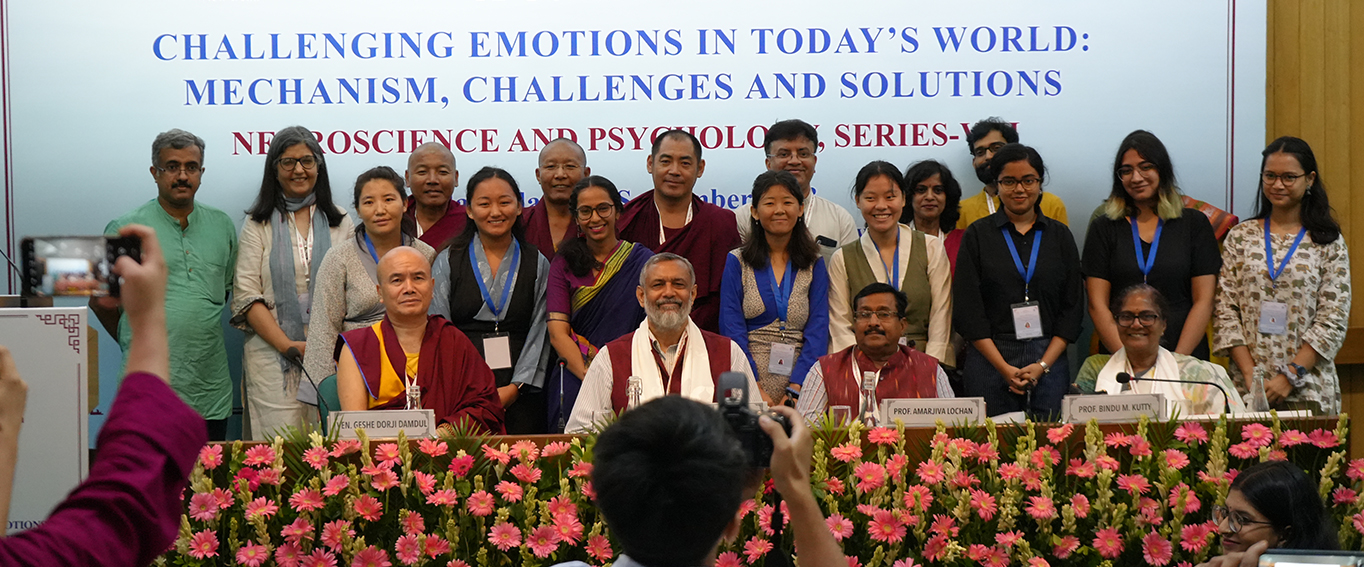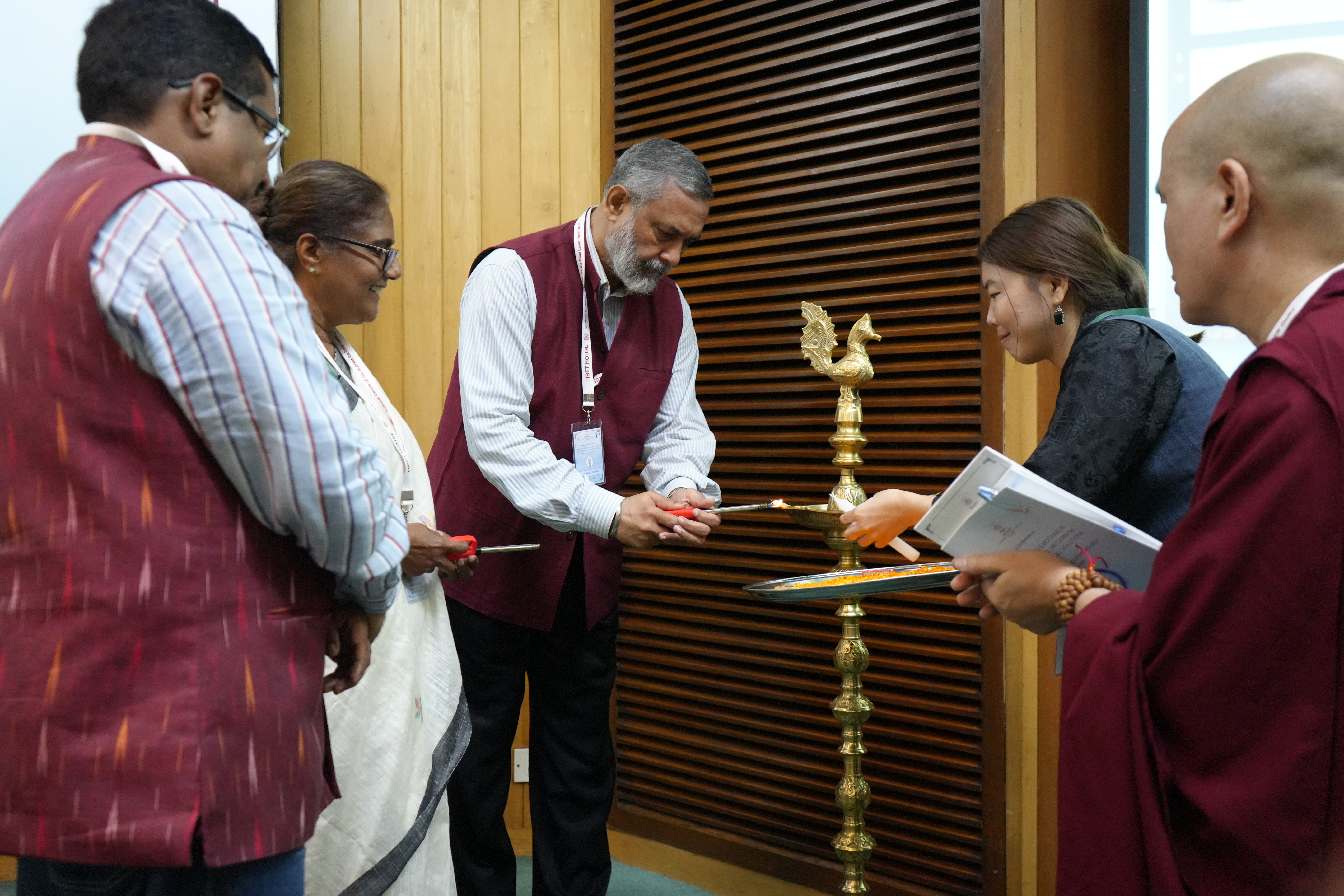By — BT NEWSDESK
Mr. Abhijit Halder, Director-General, International Buddhist Confederation (IBC), delivered the inaugural speech as the Chief Guest of the conference on “Challenging Emotions in Today’s world; – Mechanism, Challenges and Solutions”, organized by Tibet House, New Delhi at the India Habitat Centre on 16.09.2023.
In his speech, he accredited the potential connections between Buddhism and science, particularly in the field of neurosciences, psychology, consciousness and quantum theory among others. While highlighting these convergences, he also noted the fundamental disparities that distinguish the two in their history, worldviews, agenda and goals. Buddhism focuses on ethics and enlightenment whereas science is based on understanding the laws and principle of reality.
Mr. Halder’s speech emphasised the exploration of emotions and well-being of all. He pointed out the challenge of defining emotions and their subjective nature, drawing parallels with well-being of individuals. Buddhism’s unique perspective on emotions was discussed, conceptualizing them as “vedana.” Emotions, according to Buddhism, primarily direct themselves towards internal feelings rather than external factors. Mr. Halder stressed the role of Buddhist principles/philosophy in managing emotions an individual can opt by expressing or suppressing them.
He also delved into emotional aggregates’ dynamics and their impact on psychological and somatic well-being, noting the detrimental effects of negative emotions and the influence of positive states and Buddhism’s emphasis on eradicating emotional aggregates for happiness and well-being of individuals. The importance of Vipassana meditation in controlling the negative emotions was also discussed.
Mr. Halder presented a four-part approach of Buddhism in effectively dealing with emotions. Importantly, these principles apply to both negative and positive emotions, offering a path to liberation.
Challenging contemporary medical understanding, Mr. Halder suggested that Buddhist theories on emotions and illness challenge conventional clinical understanding, emphasizing the mind’s interplay with the brain in understanding emotions and overall well-being. His speech offered valuable insights into the potential of mindfulness for mental and physical health in today’s stress-ridden world.






.JPG)










